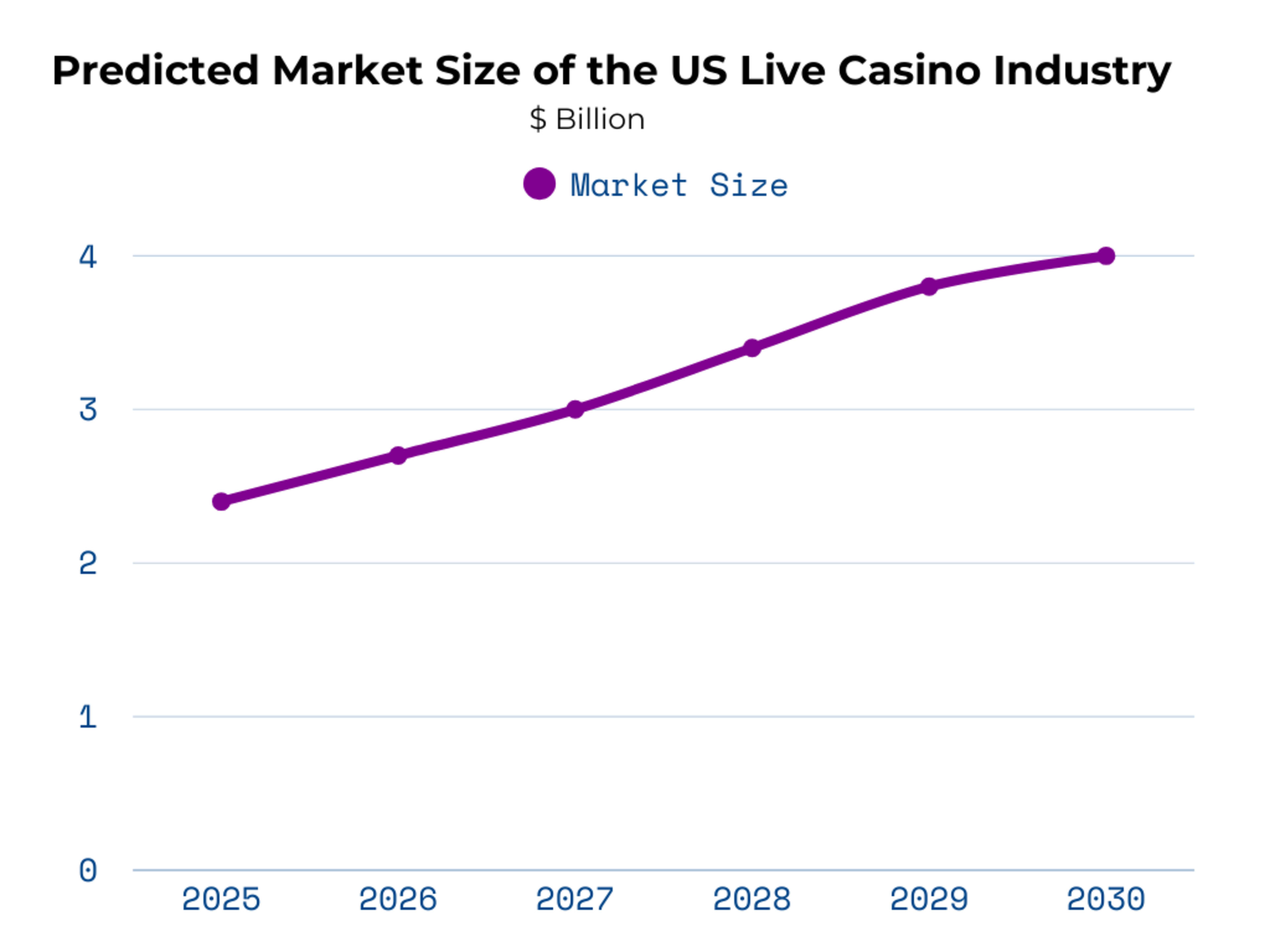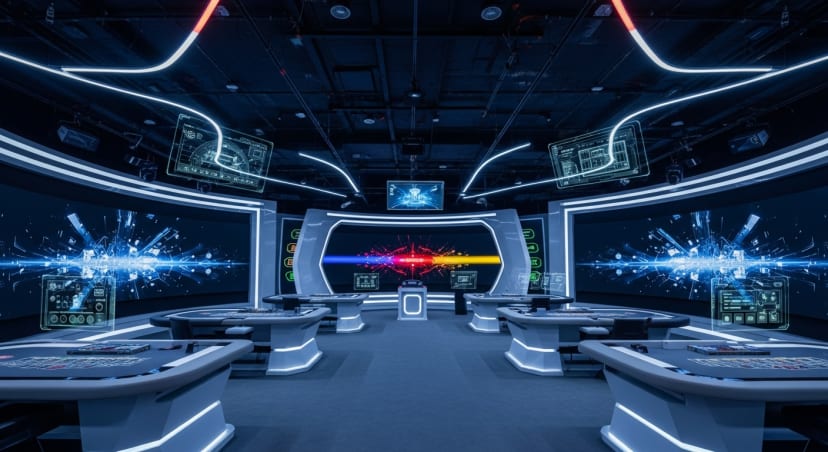Electronic Table Games vs. Live Dealers: The US Casino Overtake

Considering a punt at a casino in Zimbabwe, where the familiar sounds of shuffling cards might be giving way to the hum of sophisticated digital screens and automated thrills? That's the emerging reality as Electronic Table Games (ETGs) gain serious traction. While the specific Zimbabwean market data for ETGs isn't as widely published as larger global markets, considering the global trends and the increasing adoption of technology in iGaming, it's clear Zimbabwe's casino scene is leaning towards innovation. This shift isn't just a fleeting tech trend; it's reshaping how local casinos operate, how players engage, and how the industry evolves right here in Zimbabwe. In this piece, we'll explore why ETGs are making waves, drawing from global insights and what it means for players in Zimbabwe. Whether you're a seasoned gambler, a curious newcomer, or even an investor, get ready for a glimpse into the future of casino gaming in our vibrant country.
Why ETGs Are Gaining Ground Over Live Dealers in Zimbabwean Casinos
The move from traditional live dealer games to ETGs is picking up pace. This is largely driven by a need for operational efficiency, evolving player preferences, and the economic climate. Globally, the ETG market is booming, and casinos worldwide are looking for ways to trim costs and increase the number of games people can play. For Zimbabwe, the question is: why are ETGs becoming so popular here?
The Drive for Efficiency and Player Convenience
In recent times, events like the global pandemic have reshaped how businesses operate, including casinos here in Zimbabwe. The appeal of ETGs lies in their ability to offer continuous gameplay without the constant need for staffing, thereby reducing operational costs for casinos. They also cater to players who might prefer a more streamlined, perhaps less social, interaction with their games. For players, this often translates to faster game rounds and the potential for more wagers in a shorter time. In Zimbabwe, casinos are always looking for ways to maximise returns, and ETGs offer a compelling solution compared to the costs and complexities of maintaining a full live dealer team around the clock. popular live table games.

Real Examples: How Casinos in Zimbabwe are Adapting
Across Zimbabwe, from the bustling casinos in Harare to developments in other major towns, the trend towards embracing electronic gaming is evident. While specific casinos haven't been named as making a 'switch' in the same vein as massive international resorts, the adoption of ETGs reflects a broader shift in how modern casinos operate and engage with players in our market. Zimbabwe's casino industry, is constantly evolving. The integration of ETGs is part of this reinvention.
Consider the potential for a new casino opening in Zimbabwe. Instead of a massive upfront investment in a large team of live dealers for every table, a property might strategically deploy ETGs for popular games like poker or blackjack. This allows them to cater to a high volume of players, especially during peak hours, without the strain on operational costs. It provides a flexible and scalable solution, enabling casinos to manage capacity efficiently and offer players more opportunities to play their favourite games.
For regional casinos in Zimbabwe, integrating ETGs can be a game-changer. By offering a robust electronic gaming floor, they can attract players who enjoy the speed and autonomy of digital play. This approach allows them to compete effectively, manage resources wisely, and provide a modern gaming experience that appeals to a broad spectrum of players, showcasing them as forward-thinking establishments.
Looking ahead, upcoming casino projects in Zimbabwe are likely to prioritise ETGs as a core offering. This proactive approach means designing properties with digital gaming at the forefront, anticipating the demand for convenient and technologically advanced entertainment. By embracing ETGs from the start, new establishments can position themselves not just as traditional casinos but as modern entertainment hubs built for the future, capturing the interest of a tech-savvy generation.
Cost Breakdown: ETGs vs. Live Dealers – The Numbers Don't Lie
Money talks in high roller live casinos, and ETGs scream savings. Traditional live dealers rack up high labor costs—think $150-$200 per hour in wages alone—while ETGs slash overheads by up to 50% through minimal staffing and faster game speeds. Here's a head-to-head comparison:
Player Preferences: Who Loves ETGs and Why?
The demographics around ETGs reveal a clear generational divide.
- Younger Players (18–34 years): This age group represents the overwhelming bulk of ETG adoption, accounting for over 95% of electronic gamers in 2025. For Gen Z and younger Millennials, ETGs align perfectly with their digital-native lifestyles. They value the privacy of terminals, the ability to learn without public embarrassment, and the low-stakes bets ($5–10) that make experimentation more affordable. These players are also accustomed to mobile gaming and online interfaces, so transitioning into ETGs feels natural.
- Millennials (30s–40s): While slightly older, Millennials dominate the online gambling sector and show a strong preference for ETG blackjack and baccarat, particularly for solo play sessions. Their busy lifestyles make quick, on-demand gaming appealing, and ETGs meet this need without the social expectations of live dealer tables.
- Older Players (45+ years): This group continues to gravitate toward live dealers. For them, the allure is not speed or efficiency but the social atmosphere—dealer banter, camaraderie with tablemates, and the traditional casino experience. However, some older players have begun exploring ETGs for their accessibility and reduced intimidation factor, particularly when learning new live casino games.
Culturally, ETGs are transforming the casino environment. The old image of rowdy, crowded tables is being replaced by tech-driven zones, sleek electronic setups, and quieter, more individualized play. This reflects a generational shift in entertainment, where personalization and technology are now central.

Operator Insights: What Casino Bosses Are Saying About ETG Strategy
Casino executives have become vocal advocates of ETGs, often highlighting two key drivers: financial resilience and audience expansion.
- Financial Growth: Multiple top-rated live casino platforms explain that they are leveraging ETGs to drive profitability during a time when labor costs are unpredictable and staffing is challenging. By reducing dealer reliance, casinos enjoy higher margins per table and greater throughput per hour.
- AI Integration: Another casino leader emphasizes that AI and machine learning are transforming ETG operations. AI is not only used for marketing and player retention but also for responsible gambling tools—detecting risky patterns and offering real-time interventions.
- Strategic Agility: With ETGs, casinos can reconfigure floors more quickly, adapt to peak visitor times, and attract tech-savvy younger crowds without alienating traditional players. This adaptability has become a cornerstone strategy in 2025’s volatile economy.
Cutting-Edge Innovations: ETGs Get Smarter in 2025
2025 brings ETG wow-factors like AI-personalized betting in blackjack and AR overlays for immersive roulette. Hybrid systems blend live wheels with digital interfaces, while VR dealers elevate baccarat. These tech leaps bridge the authenticity gap, making ETGs feel alive without the human element.
The Employment Equation: Jobs Gained, Lost, and Transformed
ETGs disrupt jobs—potentially cutting dealer roles by 20-30%—but the industry forecasts 17% overall growth through 2031, creating tech maintenance and analytics positions. In 2025, unions push for reskilling, turning potential losses into opportunities. Economically, it's a mixed bag: fewer low-skill jobs, more high-tech ones.
Global Perspective: US vs. Macau and Europe in the ETG Race
The US is catching up fast, but Macau leads with ETGs generating 37% more profit than traditional tables, post-2019 adoption. Europe's slower, favoring live dealers culturally, though the UK ramps up for compliance. US casinos blend both, using ETGs for efficiency while preserving social hubs— a balanced overtake.








